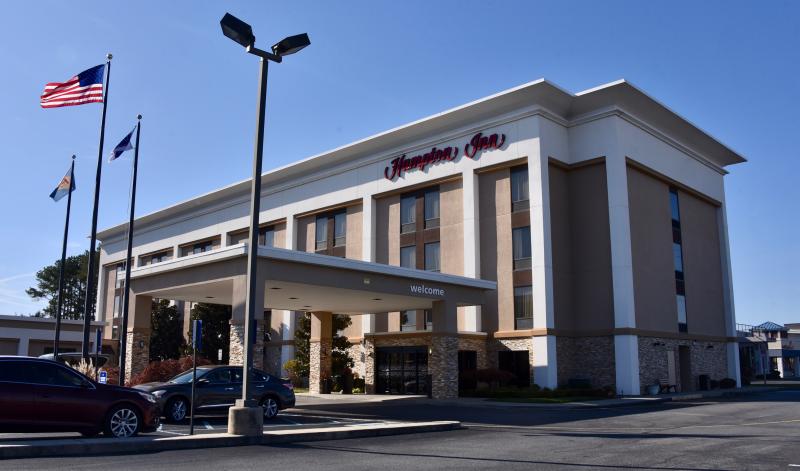Sussex County enacts lodging tax
Sussex County has enacted a 3 percent lodging tax on hotels, motels and tourist homes in unincorporated areas of the county.
The tax, which does not include short-term rentals, is scheduled to go into effect in January 2020.
At its Nov. 12 meeting, council voted 5-0 to impose the tax. Under stipulations in state law, the money can be used for beach replenishment, dredging, economic development, tourism programs, recreational activities, water-quality projects and flood-control projects.
Sussex County Councilman Irwin “I.G.” Burton of Lewes said people come to the county to enjoy the amenities that can be funded with the tax. “Maintenance of this infrastructure is not cheap, and without maintenance we will not have the tourist draw,” he said.
“I'll not support new taxes very often,” said Councilman John Rieley of Millsboro. “We are asking visitors to help share costs of infrastructure.”
House Bill 228 gives Sussex and Kent counties authority to impose the tax; New Castle County was given authority in 2018. Most incorporated towns and cities in the county already have lodging taxes. All hotels, motels and tourist homes also pay an 8 percent state lodging tax.
County Administrator Todd Lawson said funding for much-needed dredging projects may be first on the list. He said county staff has had discussions with Department of Natural Resources and Environmental Control staff on potential projects.
Concern over short-term rentals
During council's public hearing, some hotel owners testified that hotels are already taxed enough, and the law should include short-term rentals.
Julie Cummings, who operates a hotel in Fenwick Island, said area hotel/motel owners are under tremendous pressure from Airbnb rentals, which do not pay a state lodging tax. “It's an unfair advantage. We need a fee on short-term rentals. I don't understand how they are getting off scot-free,” she said.
Cummings said campgrounds and condominium rentals are also exempt from the 8 percent state tax already collected by the state. “Before any changes, the definition of a tourist home needs to include everyone,” she said.
Under state law, tourist homes are defined as rentals with five or more bedrooms, such as some bed and breakfast inns.
Coy Johnston, who owns a family hotel on Route 1, said he collects 26 percent in taxes and fees on each room he rents, including state taxes and travel-site fees. “Costs are not going down. We can only charge so much,” he said.
Johnston said room occupancy has been falling slightly since 2016-17. “We're at a saturation point with the new hotels,” he said.
Reinie Thompson, who also operates a Route 1 hotel, agreed with Johnston. “We are struggling. It has been a very down year for us. And with more rooms coming on the market, it will only get worse,” she said.
She said research is needed to see how much tax could be collected from short-term rentals.
Scott Thomas, executive director of Southern Delaware Tourism, said the county needs to stay competitive in line with taxes charged by neighboring counties. “Bus groups pay very close attention to taxes on hotels,” he said. “Motel and hotel taxes fund the bulk of tourism efforts statewide.”
Burton said council understands the need to tax short-term rentals. “It should be a level playing field; it's upside down now,” he said.
“We take to heart what you've said,” said Council President Mike Vincent of Seaford. “Right now, in Legislative Hall there is no will to tax short-term rentals. We can ask the question: Should this be looked at?” he said.
Dan Kramer of Greenwood asked, “Why are you taxing when you truly don't need it? You have surplus money in the budget. If you were broke, it would be a different story.”
More than 40 venues
According to Lawson, more than 40 venues will be taxed, raising an estimated $1.3 million per year.
Lawson said funds would be placed in a special account with county council determining how the money would be spent during the annual budget process.
Lawson said there are no definitions in the categories. “It's very broad and left up to the discretion of county council,” he said.
Under the proposed plan, hotels, motels and tourist homes would submit payments monthly to the county. Lawson said in the near future, it's possible the state could collect the tax electronically, removing the county from the collection process.
Occupancy rates average from 80 to 85 percent in the 80 hotels and bed and breakfast inns throughout the county, including those in towns and cities. There are more than 4,200 hotel/motel rooms in the county with another 800 rooms scheduled to be built.























































